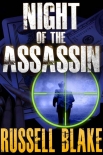The Gangster Clive Cussler (mystery books to read .txt) 📖

- Author: Clive Cussler
Book online «The Gangster Clive Cussler (mystery books to read .txt) 📖». Author Clive Cussler
Two days later, he marched into the New Haven yard master’s office and announced, “I’m Isaac Bell. I’m a first year student at Yale. There’s a rumor on campus that detectives are inquiring about Locomotive 106.”
“What about it?”
“I’m the guy who borrowed it.”
“Sit there! Don’t move. Wait for the police.”
The yard master snatched up a telephone and reported Bell’s confession.
An hour passed. A prematurely white-haired detective in a pin-striped suit arrived. He was leading an enormous man whose head was swathed in bandages that covered his entire face but for one glaring eye. The eye fixed on Isaac Bell.
“That’s no wop,” he mumbled through the bandage. “I told youse he was a wop.”
“He says he stole 106.”
“I don’t care if he stole a whole damned train. He ain’t the dago Eye-talian wop guinea what sliced me.”
The white-haired detective walked the big man out. He returned in twenty minutes. He sat with Bell and introduced himself as Detective Eddie Edwards. Then he took out a memo book and wrote in a neat hand as he listened to Bell’s story. Three times, he asked Bell to repeat it. Finally, he asked, “Did you happen to see the wop who slashed that yard bull’s face?”
“Not at New Haven, but there was someone at the Farmington yards.” Bell told him about encountering the hobo with the wing-footed gait. “He could have ridden under the tender.”
“I’ll pass it on to the railroad dicks. But he’ll have worked his way to Boston by now.” Edwards made another note and closed his book.
Bell said, “I hate to think I helped a criminal escape.”
“Any man who could whip that yard bull didn’t need your help escaping. Come on, kid. I’ll walk you back to school.”
“You’re letting me go?”
“By a miracle, your harebrained stunt did not lead to death, injury, or destruction of property. Therefore, it is not in the interest of the New Haven Railroad to prosecute the son of a Boston banker from whom they one day might want to borrow money.”
“How did you know my father is a banker?”
“Wired a fellow in Boston.”
They walked up Chapel Street, with Bell answering Detective Eddie Edwards’ questions about landmarks they passed. At the Green, Edwards said, “Say, just between us, how many pals did you need to pull it off?”
“I did it alone,” said Bell.
Eddie Edwards looked the young student over speculatively.
Bell returned the speculative look. Edwards fascinated him. The detective was a snappy dresser compared to the poor railroad detective who’d had his face slashed. And he was a chameleon, with an easygoing manner that disguised a sharp gaze and a sharper mind. He was considerably younger than his shock of white hair made him look. Bell wondered where he carried his gun. A shoulder holster, he guessed. But nothing showed.
“Tall order, all by yourself,” Edwards mused. “Frankly, I admire a man who stands up for his friends.”
“Frankly,” said Bell, “even if friends had come along, it would still have been entirely my idea.” He showed the detective his maps, Waltham, and timetable. “Are you familiar with Grimshaw’s Locomotive Catechism?”
“Good answer, kid. Backed by evidence. While changing the subject with a question. You have the makings of a savvy crook.”
“Or a savvy detective?”
A smile tugged Edwards’ mouth even as he said, firmly, “Detectives help people, they don’t steal their property.”
“Mr. Edwards, did you imply, earlier, that you don’t work for the railroad?”
“The roads bring us in when a job calls for finessing.”
“Who do you work for?”
Edwards squared his shoulders and stood a little taller.
“I’m a Van Dorn detective.”
ELEVEN YEARS LATER
1906
BOOK I
Captain Coligney’s Pink Tea
1
Little Sicily, New York City
Elizabeth Street, between Prince and Houston,
the “Black Hand block”
The Black Hand locked twelve-year-old Maria Vella in a pigeon coop on the roof of an Elizabeth Street tenement. They untied the gag so she wouldn’t suffocate. Not even a building contractor as rich as her father would ransom a dead girl, they laughed. But if she screamed, they said, they would beat her. A vicious jerk of one of her glossy braids brought tears to her eyes.
She tried to slow her pounding heart by concentrating on the calmness of the birds. The pigeons murmured softly among themselves, oblivious to the racket from the slum, undisturbed by a thousand shouts, a piping street organ, and the thump and whirr of sewing machines. She could see through a wall of wooden slats admitting light and air that the coop stood beside the high parapet that rimmed the roof. Was there someone who would help her on the other side? She whispered Hail Marys to build her courage.
“. . . Santa Maria, Madre di Dio,
prega per noi peccatori,
adesso e nell’ora della nostra morte . . .”
Coaxing a bird out of the way, she climbed up on its nesting box, and up onto another, until she glimpsed a tenement across the street draped with laundry. Climbing higher, pressing her head to the ceiling, she could see all the way down to a stretch of sidewalk four stories below. It was jammed with immigrants. Peddlers, street urchins, women shopping—not one of them could help her. They were Sicilians, transplanted workers and peasants, poor as dirt, and as frightened of the authorities as she was of her kidnappers.
She clung to the comforting sight of people going about their lives, a housewife carrying a chicken from the butcher, workmen drinking wine and beer on the steps of the Kips Bay Saloon. A Branco’s Grocery wagon clattered by, painted gleaming red and green enamel with the owner’s name in gold leaf. Antonio Branco had hired her father’s business to excavate a cellar for his warehouse on Prince Street. So near,





Comments (0)